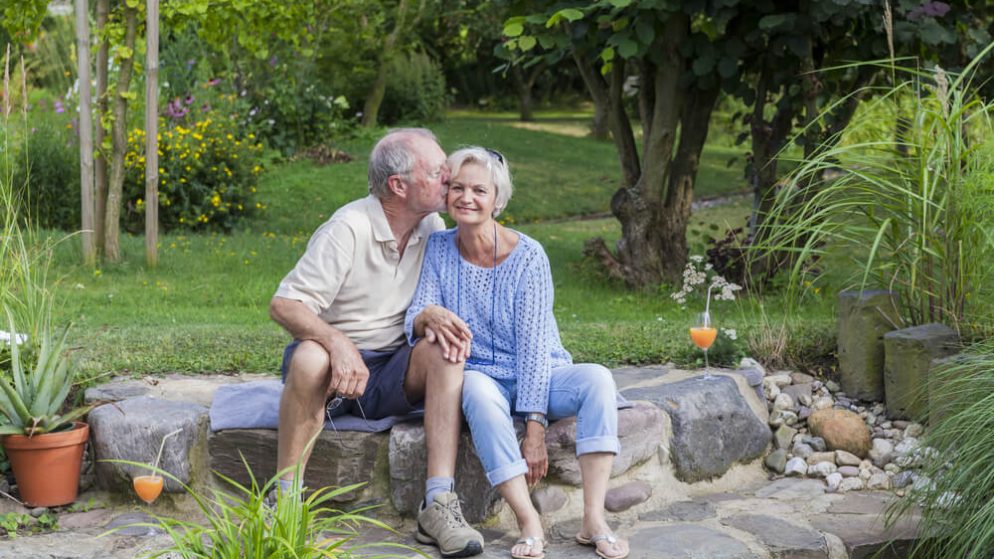



Get new exclusive access to healthcare business reports & breaking news




As people age, they may start feeling isolated and lonely. This is more so with older adults, who have to see many friends and family leave and pass away before them. The fact that their physical and mental health are not as they used to be doesn’t help.
Loneliness has been proven to harm the well-being of seniors in many aspects. For this reason, fostering social interaction among aged care residents is a big focus of many institutions. Many families send their loved ones there in the first place to ensure they have a sense of community even when they can’t do everything they used to do.
Many older adults also planned for their aging carefully in previous years, pouring considerable money and effort to ensure they remain active and comfortable.
To fill these apparent needs, aged care facility managers should always find ways to help residents maintain their new communities. They empower them to forge new relationships and foster old ones while helping them handle other major concerns, such as their health and mobility.
This post will share several strategies that aged care facilities can implement to increase social interaction among their residents. These help ensure they’re happy and thriving in their old age, which are keys to fulfilling your vocation and satisfying clients.
Here are some highly effective strategies you should add to your residential programs.
Studies have shown that animal therapy can increase social interaction and reduce feelings of loneliness and depression in older adults.
Various animals can be a source of comfort and companionship for them. After all, who doesn’t want to get up close and personal with kind, cuddly creatures?
The impact of pet therapy is immense. Aside from reducing feelings of isolation and loneliness, it also provides the following benefits:
There are animals trained for this kind of activity. Inviting professionals to your facility to assist with the therapy sessions is best. Aside from the typical pets like dogs, cats, and birds, they can also safely bring horses and other farm animals to your location.
Group activities allow residents to spend more time out of their rooms and meet others.
When planning them, it’s best to pay attention to what each resident prefers. That way, you can encourage them without making them feel forced.
Your staff must know your residents’ interests to craft an activity schedule that makes as many residents interested and happy as possible. Consider rotating activities to cover everyone’s hobbies and preferences.
Your facility can organize the following:
These activities help them stay active while creating the perfect avenue for spending time with others.
Aside from indoor activities, you may also include going outside the facility with supervision. If they love shopping, you can take them to the mall for long tours. Community events, like fairs and bazaars, are also good opportunities to take them outside. Just make sure you cover any potential health concerns.
These refer to anything from residents’ birthdays and anniversaries to actual holidays. Whichever you choose, they can be dates when everyone gets to go festive in the facility.
Big holidays have deep meaning and value for some residents. Celebrating them would be momentous.
For example, Veteran’s Day and Grandparent’s Day can hold much importance in their hearts, especially since they get family visits. It’s best to accommodate that to make such events more memorable. Decorate the facility and provide food, beverages, and music to create a safe, fun socializing atmosphere.
When you have an inviting and comfortable common space, you ensure residents have an excellent place to relax and socialize at different times of the day. Equip it with adequate lighting, dependable climate control, and comfortable seating areas.
For residents with mobility challenges, the space must be accessible. Install handrails and wheelchair ramps and keep floors free from spills and roadblocks to prevent accidents.
Aside from group activities, having someone to talk to regularly is essential. A friendly ear to listen to your stories can mean a lot.
Consider scheduling one-on-one interactions between staff members and residents so they get to catch up with one another. This can help build trust, ensuring cooperation whenever one of the staff needs to do something for your loved one’s care.
You may also encourage their family members and friends to talk to them regularly so they won’t feel neglected. This can be through phone calls, visits, video calls, emails, or letters.
It helps to train your staff to understand cues from residents. That way, you can call their family when they look like they need encouragement from their loved ones. That’s why it’s crucial to have updated contact information from their families and friends so you can contact them during these times.
Most seniors actually spend a lot of time online.
If some residents aren’t tech-savvy, you can teach them the basics, like email and video calling. It can significantly increase their social interaction and connectivity with people outside the care facility.
They can also attend virtual social events and connect with people anywhere in the world. Even better, they can access social media and many forms of entertainment to keep them busy daily.
Staff members are vital in facilitating social connections and interactions among residents. When they are adequately trained, you can ensure that the residents receive high-quality care and social support.
They must be well-versed in the following:
These skills are essential since many residents have problems with hearing, vision, mobility, and speech. They become highly valuable when dealing with dementia patients needing special assistance.
Social interaction is a critical part of caring for older adults. Implementing this post’s strategies can help residents thrive where they are and appreciate your support.
Of course, this isn’t an exhaustive list. Pay attention to what your residents want and need to create the ideal residential care experience.